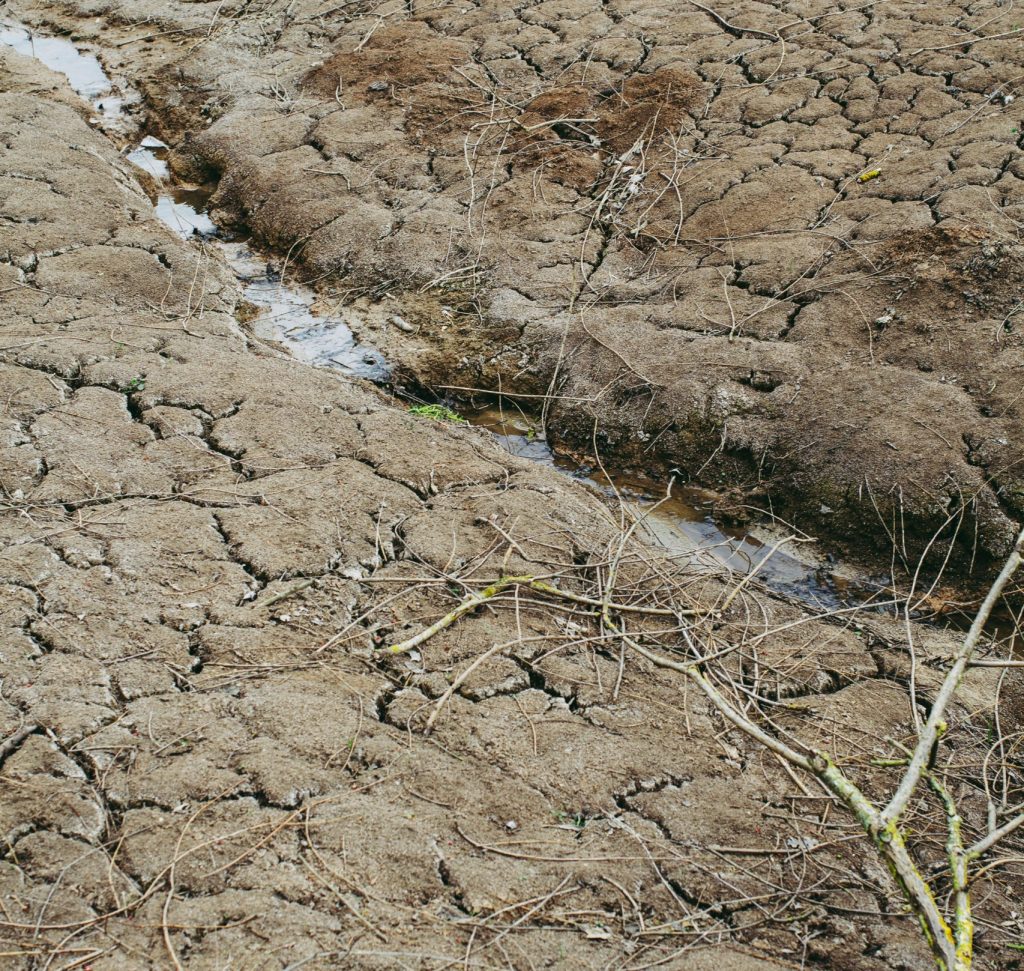The environment is directly impacted by drought. Drought can affect water sources, land, fish and wildlife and plant communities. The extent of the effects depends on the type, severity and duration of the drought.
Drought can result in lower water levels in reservoirs, lakes and ponds, as well as reduced streamflow in rivers. This decrease in available water can also lead to shrinking wetlands, groundwater depletion and even impact water quality (e.g. the concentration of salts and other contaminants can increase).

An inadequate water supply will result in the reduced ability for soils to support crops, an increased amount of dust due to dryness, erosion, and a greater chance of wildfires due to drier vegetation.
A lack of water and reduced ability for soil to support crops can affect fish, animals and plant life. Wildlife habitat may become degraded because poor soil quality and inadequate water may affect plant growth, and there may not be enough drinking water for animals. There may also be stress placed on endangered species and a loss of biodiversity in the affected area.
Reduction and degradation of fish and wildlife habitat.
Lack of drinking water for livestock and wildlife.
Lower water levels in reservoirs, lakes, and ponds.
Reduced streamflow.
Reduced soil quality.
Increased quantity of dust.
Death of vegetation and trees.
Reduced soil quality.
Drought is a serious environmental problem that affects many regions of the world. It can have lasting and irreversible consequences for the health and well-being of humans and nature. Rising temperatures caused by climate change are making already dry regions drier and wet regions wetter. In dry regions, this means that when temperatures rise, water evaporates more quickly, and thus increases the risk of drought or prolongs periods of drought [1]. Severe drought affects Africa more than any other continent with over 300 events recorded in the last century [2]. A 2017 Food and Agriculture report estimates the percentage of our planet affected by drought has more than doubled from 1970-2010 with some 12 million hectares lost every year to drought and desertification [3].
We provide Canadian educational resources on water practices to promote conservation and sustainability. Our team crafts current and relevant content, while encouraging feedback and engagement.
The Canada WaterPortal is a registered charity, #807121876RR0001
We recognize and respect the sovereignty of the Indigenous Peoples and communities on whose land our work takes place.
© 2025 All Rights Reserved.